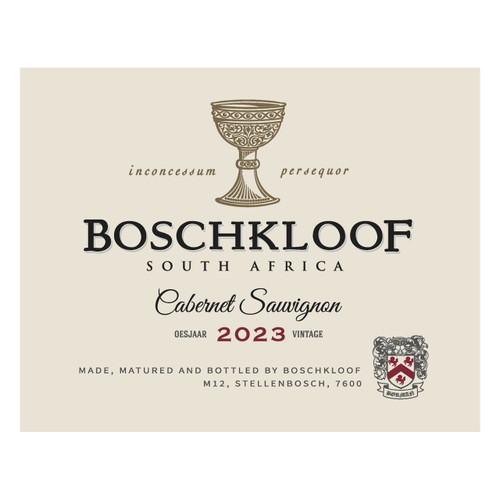Grape Variety:
100% Sauvignon Blanc
Soil:
Primarily decomposed granite over ironstone & ferricrete
Farming:
Sustainable - Lutte Raisonnée
Alcohol by Volume:
13.5
Vineyards & Viticulture:
Sauvignon Blanc in Stellenbosch is often an afterthought, often produced for the tasting room to generate quick revenue. Reenen has really taken to the variety and out to make a very serious value wine with a bit of skin and lees contact for texture & complexity. There is no Sauvignon Blanc on the estate as the site is too warm for pristine grapes, so the Bormans have great relationships with other growers that farm very high quality Sauvignon Blanc. They have contracted fruit from Vergelegen at the base of the Helderberg.
Harvest & Vinification:
The small block of Sauvignon Blanc was handpicked between 21º-23º brix at sub-two tons per acre. The grapes were lightly crushed naturally in the picking bins and saw two hours on skins prior to being whole-bunch pressed to stainless steel tanks. The lots were fermented without inoculation and the wine spent four months on lees with weekly battonage. After the four months were up it was racked to a larger tank and bottled without fining and only a very light filtration.
100% Sauvignon Blanc
Soil:
Primarily decomposed granite over ironstone & ferricrete
Farming:
Sustainable - Lutte Raisonnée
Alcohol by Volume:
13.5
Vineyards & Viticulture:
Sauvignon Blanc in Stellenbosch is often an afterthought, often produced for the tasting room to generate quick revenue. Reenen has really taken to the variety and out to make a very serious value wine with a bit of skin and lees contact for texture & complexity. There is no Sauvignon Blanc on the estate as the site is too warm for pristine grapes, so the Bormans have great relationships with other growers that farm very high quality Sauvignon Blanc. They have contracted fruit from Vergelegen at the base of the Helderberg.
Harvest & Vinification:
The small block of Sauvignon Blanc was handpicked between 21º-23º brix at sub-two tons per acre. The grapes were lightly crushed naturally in the picking bins and saw two hours on skins prior to being whole-bunch pressed to stainless steel tanks. The lots were fermented without inoculation and the wine spent four months on lees with weekly battonage. After the four months were up it was racked to a larger tank and bottled without fining and only a very light filtration.






